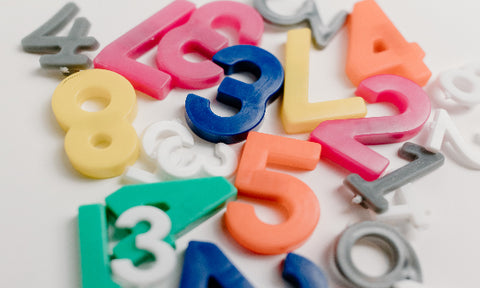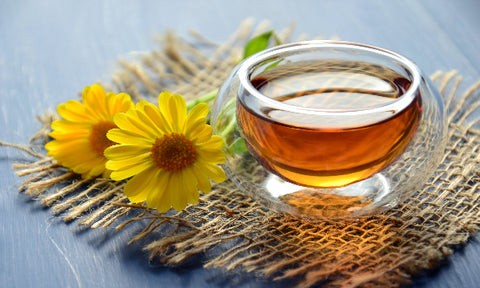“Is it menopause?” “Is there any tea that is effective for menopause?”
Are you worried about the symptoms and measures of menopause?
Some people who suffer from menopausal disorders may be wondering if there is any tea that is effective in improving menopausal symptoms.
In this article, we will introduce recommended teas that are said to be good for menopause and points to note when drinking them.
If you are interested, please refer to it.
- What is menopause
- 5 recommended teas for menopause (mint tea, chamomile tea, sage tea, medicinal tea, black bean tea)
- Two points to note when drinking tea (caffeine, sugar content)
Also read the following articles
Relationship between hot flashes and hot flashes and menopause | Countermeasures and improvement methods
[I can understand you in just 3 minutes]
Click here for a free medical interview supervised by a doctor that can be done on LINE
What is menopause

Menopause refers to the 10 years before and after menopause.
There are individual differences in the timing, but the average age of menopause in Japan is about 50 years old. Women between the ages of 45 and 55 are most likely to go through menopause.
After the mid-40s, ovarian function declines and female hormones fluctuate and decline, and menopause is approaching.
At this time, menopausal symptoms that cause various upsets may be seen even though there is no underlying disease.
Among them, those who have severe symptoms that affect their daily lives may be menopausal disorders.
Take a breather during menopause!

Menopause can be irritable and can cause unpleasant symptoms.
In such a case, why don't you have a cup of tea where you can take a break?
Different types of tea have different aromas and expected effects. Here are five recommended teas for menopause.
- mint tea
- chamomile tea
- sage tea
- Medicinal tea
- Black soybean tea
mint tea
Mint tea with a refreshing scent. The refreshing scent of menthol makes you feel refreshed, so it is recommended when you want to feel refreshed .
Typical symptoms of menopause include hot flashes, which are symptoms of hot flashes even when it is not hot, and sweating.
In such a case, we recommend a refreshing mint tea.
It is also said to be good for a change of mood when irritated by mental symptoms.
chamomile tea
Chamomile tea is a popular tea among herbal teas and is characterized by a green apple-like scent.
Chamomile is expected to be effective not only for mental disorders because it calms the mood, but also for physical disorders that suppress pain and inflammation .
There are also reports that chamomile is used to relieve premenstrual syndrome (PMS) by utilizing its anti-inflammatory and anti-anxiety effects1).
If you feel restless and can't sleep at night, why don't you drink chamomile tea at night?
sage tea
The scent of sage is refreshing and similar to mugwort.
It is expected to be effective in soothing inflammation of the throat and stomatitis, as well as relieving the symptoms of menopause.
Some studies even reported that sage reduced the number of hot flashes seen in menopausal symptoms (2).
Hot flashes are vasomotor symptoms such as hot flashes, hot flashes, and sweating.
Following mint tea, sage tea is also recommended for relieving hot flashes and hot flashes.
Medicinal tea
The tea that you drink according to your physical condition, constitution, and season is called medicinal tea.
Menopausal symptoms range from hot flashes, sweating, stiff shoulders, fatigue, coldness, and depression, so we recommend drinking medicinal tea according to your symptoms .
You may have an image that medicinal tea requires special ingredients, but you can make it with familiar ingredients sold at supermarkets. For example, the ginger tea that you drink when you have a cold can be thought of as medicinal tea.
In addition, medicinal tea is not limited to tea leaves, but flowers and fruits are also used as ingredients.
It is said that medicinal tea using jujube fruit is also good when you feel tired easily.
There is also a report that herbal medicines containing jujube may improve sleep symptoms in menopausal women3).
Black soybean tea
The raw material is black soybeans, so the old-fashioned calming and fragrant bean scent makes you feel relieved.
Black beans contain ingredients that are expected to have various health benefits.
For example, potassium contained in black soybean tea and black soybean polyphenol are expected to be effective against swelling.
If you have swelling due to menopausal symptoms, try changing your usual tea to black soybean tea.
Tips for drinking tea during menopause

There are some teas that are said to be good for menopause, but you need to be a little careful when consuming them.
Despite the expected health benefits, drinking too much can have adverse effects. There are two things to keep in mind when drinking tea.
- caffeine
- sugar content
Be careful with caffeine
When drinking tea, watch the caffeine content.
Depending on how much caffeine you consume in a day and when you consume it, it can keep you awake at night.
Coffee has a lot of caffeine in it, but there are some types of tea that contain a lot of caffeine.
If you have insomnia symptoms such as difficulty falling asleep due to menopausal symptoms, be aware of the amount and timing of drinking. It is also recommended to choose decaffeinated tea that does not contain caffeine.
Be careful with sugar
If you like sweet tea, you may want to add sugar, but be careful, as too much sugar can raise blood sugar levels . There is also a report that nursing care interventions aimed at stabilizing blood sugar levels are thought to be effective in reducing hot flashes during menopause4).
In order not to adversely affect the symptoms of menopause, please do not take too much sugar.
Chinese herbal medicine is also recommended for various symptoms of menopause
Taking herbal medicine is also effective for painful menopausal symptoms. Kampo medicine comprehensively reviews various things such as the person's constitution and lifestyle, and gradually improves symptoms from the inside of the body. There are various herbal medicines, but the herbal medicines that are effective for menopausal symptoms are as follows.
- Kamishoyosan: Depression, irritation, hot flashes, hot flashes, etc.
- Toki shakuyakusan: Tendency to coldness and anemia
- Keishibukuryogan: Hot flashes, headache, lower abdominal pain, etc.
There are individual differences in menopausal symptoms, and it is necessary to take Chinese herbal medicine that matches the symptoms . Kampo medicine gradually improves the symptoms, so it is easy to incorporate it into your life, so if you want to alleviate the symptoms little by little, please consult your doctor or pharmacist.
▼ You can consult Kampo on LINE
Click here for a free consultation supervised by a doctor
summary
Just as the symptoms of menopause are diverse, so are the types of tea.
Mint tea, chamomile tea, sage tea, medicinal tea, and black soybean tea introduced this time have the potential to alleviate the discomfort that occurs during menopause.
However, tea is not a medicine or a prescription. Keep it to the extent that it is incorporated as one of the self-medications, and when the malfunction continues, let's consult a medical institution .
Also, when you drink tea, you need to be careful of caffeine and sugar. Please try to find your favorite tea at tea time when you want to take a break.
[I can understand you in just 3 minutes]
Click here for a free medical interview supervised by a doctor that can be done on LINE
References
1) Khalesi ZB et al. Efficacy of Chamomile in the Treatment of Premenstrual Syndrome: A Systematic Review. 2019 https://www.ncbi.nlm.nih.gov/pmc/articles/PMC6970572/#!po=8.33333
2) S Bommer et al.First time proof of sage's tolerability and efficacy in menopausal women with hot flushes:2011 https://pubmed.ncbi.nlm.nih.gov/21630133/
3) Coyle ME. Licorice (Glycyrrhiza spp.) and jujube (Ziziphus jujuba Mill.) formula for menopausal symptoms: Classical records, clinical evidence and experimental data.2021 https://www.sciencedirect.com/science/article/abs/ pii/S1744388121001316?via%3Dihub
4) Sharon Dormire.The Effect of Dietary Intake on Hot Flashes in Menopausal Women.2007 https://www.ncbi.nlm.nih.gov/pmc/articles/PMC2765999/








